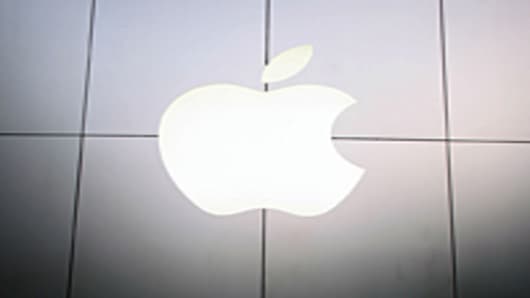Apple's first foray into selling its iPhone in China at the end of 2009 failed to hit analyst expectations. Months after the official launch of the iPhone 3GS model, sales were nowhere near on track to hit the 5 million Apple’s partner, China Unicom, had announced as its goal. Many argued that high prices and regulations limiting Wi-Fi chips in smartphones were to blame.
Yet, a year later, its Shanghai’s flagship store is reportedly the most profitable per square foot in the world. There are now waiting lists to buy iPads and iPhones, even though they sell for 30 percent more than in America.
What happened? What did Apple do to turn around its operations when other foreign retailers like Best Buy and Home Depot had to retreat from the market?
Originally, Apple waited too long to get the iPhone into the market. By the time the iPhone officially sold there, early adopters had already bought around 2 million cracked versions smuggled in from the U.S. and Hong Kong.
So for the iPad, Apple used a different tack. Instead of waiting years as it did with the iPhone, Apple waited only months after it came out in the U.S. to launch the iPad in China. Consumers did not feel the need to travel abroad to shop when they knew products were coming to them soon.
The key takeaway is that brands need to launch in China at the same time as they do in other markets or at least sooner after. With retail sales in the country growing to the tune of 16-18 percent a year, fueling serious profits for companies like Nike and Intel , it does not make sense to wait too long to get products into the market.
Savvy brands often even launch products there first. Ferrari commonly releases new models in China before America, as does Gucci . With 50 million Chinese travelling abroad in 2010 and 480 million surfing the web, they demand the newest products promptly and are mobile enough to travel abroad to buy.
In the last year Apple also finally set up its own stores rather than relying on distributors. Before, consumers had to buy Apple products in local electronic markets from resellers in tiny stalls that were often dimly lit and smelly. Service was spotty at best and consumers feared buying fake or refurbished products. Rumor had it that many of these stalls bought old Macs or iPhones, put them in new shells, and sold them as brand new.
Like in other markets, Apple’s new stores are fun to shop in, have great service, and consumers trust that they are buying the real thing. Unlike with Best Buy , which sold too many of the same products at higher prices, Apple is differentiating both its service and its products from other retailers while keep a uniform pricing scheme in the country. There is a significantly wider gap in the quality of experience between shopping at an Apple Store and a reseller in a dingy electronics mall than between shopping at a Best Buy and a Gome, China's largest electronics superstore chain.
Finally, Apple launched a Wi-Fi version its iPad that did not force consumers to sign a contract with a mobile operator which consumers shy away from. For instance, my firm’s research suggests that most consumers prefer to use pay-as-you-go top-up cards for mobile devices rather than sign on to long-term contracts. The reason is that many consumers spend 2-3 months of their salaries on an electronic item like a phone to show their status and sophistication but cannot afford high monthly fees.
Despite soaring profits being made there, retail is not easy in China. Brands need to update their supply chains to be able to release there at the same time as in other markets, differentiate their products and services, and cater to local consumer preferences better. Apple learned this after the weak launch of its iPhone – that’s why its sales there are soaring, and will continue to do so.
Shaun Rein is the founder and managing director of the China Market Research Group (www.cmrconsulting.com.cn) a strategic market intelligence firm, and is based in Shanghai. Follow him on Twitter at @shaunrein. He does not own stock in any of the companies mentioned.


